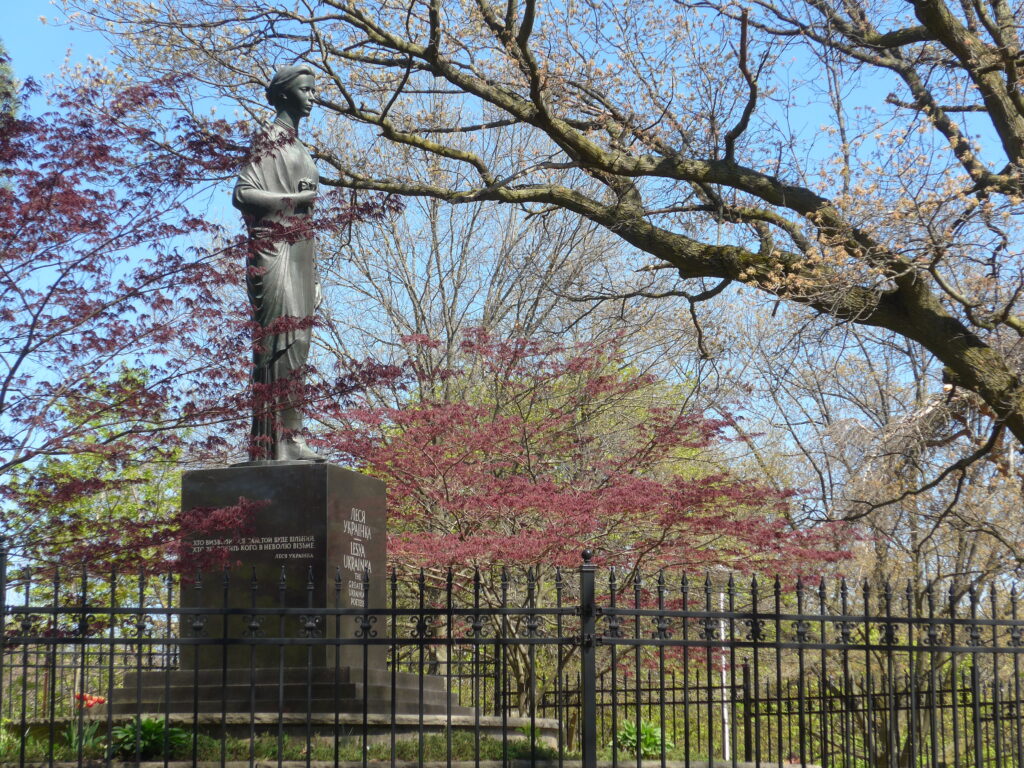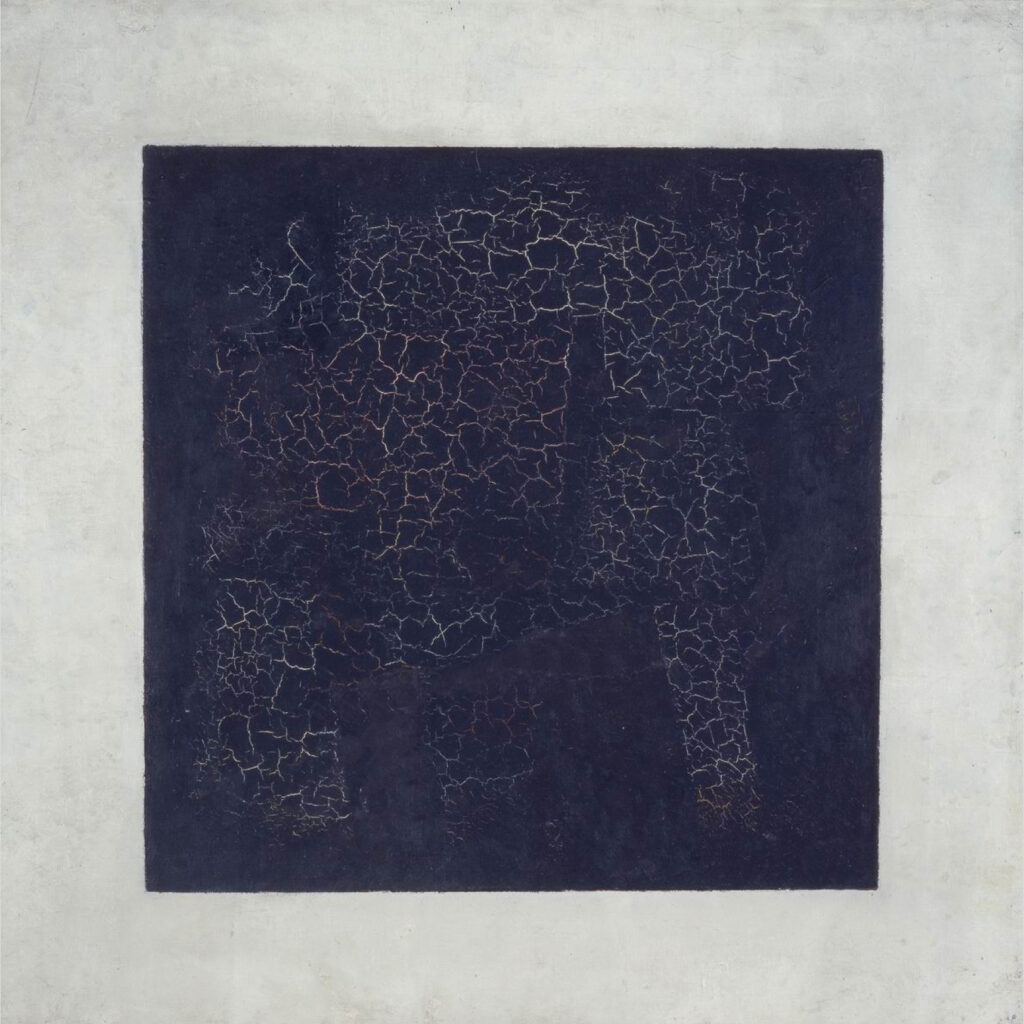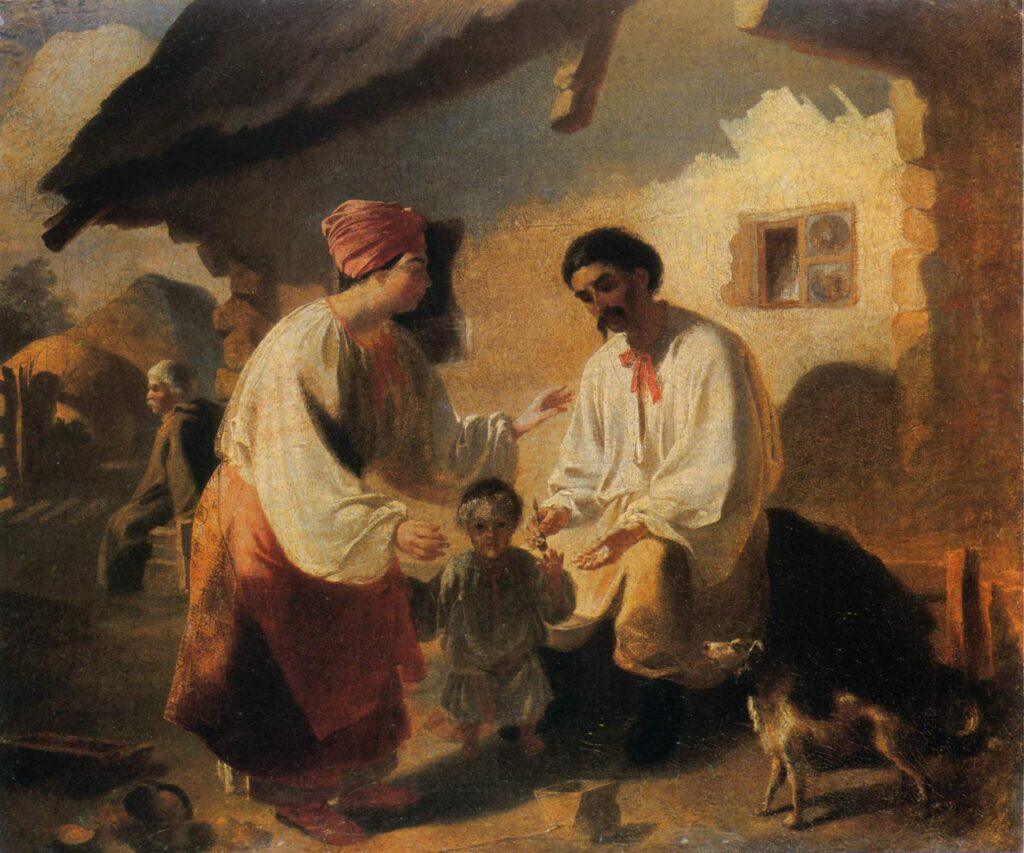Europe has celebrated its Shakespeares and Mozarts, but Ukraine’s Shevchenko, Malevich and Skovoroda remain largely unknown – erased by centuries of Russian repression.
From Shakespeare to The Beatles, from Goethe to Beethoven, from Molière to the Enlightenment: Europe has filled the world with voices, ideas, and masterpieces that shaped civilizations. Even small nations such as the Netherlands or Austria left their mark through Rembrandt, Van Gogh, Mozart, and Freud. Yet when it comes to Ukraine – a country larger than Germany and older than many modern states – most Europeans struggle to name a single cultural giant.
How many know the work of the iconic Ukrainian poet Taras Shevchenko? Behind him stretches a long line of names scarcely known beyond Ukraine: the modernist writer Lesya Ukrainka, the avant-garde artist Kazimir Malevich with his radical Black Square. And earlier still: Hryhoriy Skovoroda, the “Ukrainian Socrates,” whose famous words – “The world tried to catch me, but did not” – breathe the same spirit as Montaigne or Pascal.

And yet, what is Ukraine to the world today? Just war. What is Kyiv? Zelensky in a military jacket, shattered homes, and the endless repetition of air raid, shelling, attack – and again: bodies, bodies, bodies.
Moscow systematically eradicated everything Ukrainian
Cultural achievements are absent from Europe’s attention – not because they were less valuable, but because they were systematically pushed to the margins. This happened constantly, relentlessly, mercilessly.
The poets of the “Executed Renaissance” – an entire generation of Ukrainian writers and artists executed by Stalin or lost in camps in the 1930s – form only one layer of this loss. Their voices, which might have carried Ukrainian culture into modern times, were silenced forever.
In the 1970s, the entire Soviet Union was humming Chervona Ruta. Its composer, Volodymyr Ivasyuk, with that single melody, sparked a wave of interest in Ukrainian culture struggling to surface despite everything. For that very reason, he was eliminated by the KGB – his death in a forest near Lviv staged as suicide. A talent that could have given the world dozens of masterpieces was destroyed – like thousands of others before and after him.
Chervona Ruta, written by Volodymyr Ivasyuk, sung by Sofia Rotaru.
This is just one detail in a vast campaign of destruction. That is why a country with a thousand-year history and a territory 43 times larger than the Netherlands has left barely a trace on world culture. In global consciousness, Ukraine exists mostly as a geographical label, or as the red and grey blotches on DeepStateMap: occupied territories, frontlines, attack routes.
The answer is harsh. Russia’s aggression against Ukraine did not begin in 2014, nor even in 2022. It was not waged only with armies and rockets. For centuries, Moscow systematically eradicated everything Ukrainian: voices, customs, songs, books, ideas. What censorship could not destroy was distorted, appropriated, or silenced.
For three hundred years Ukraine lived under the yoke of the Russian Empire and the Soviet Union – essentially the same thing. Who can count how many writers, scientists, and musicians were killed by wars and repressions? How many perished in the Holodomor, cut off by NKVD troops, robbed even of a crumb of bread? Who survived the Siberian camps?
Ukraine will outlive the dictators
Today, thirty-four years after independence – above all, independence from Russia – this genocidal terror continues. Every week social media fills with photos of another Ukrainian singer, actor or artist killed at the front. Bright, inspired faces that could have given so much to their country. Most of them did only one thing – but the most important: they defended Ukraine with their lives.
No statistic can measure how many talents will never be born because they will never have fathers.

When I read about the demographic crisis in my country, I can identify the culprit without hesitation. My finger always points east – to the Kremlin walls that, hundreds of kilometres away, conceal the greatest war criminal of our time.
Today that is Putin. Before him it was Stalin. Before them, a line of tsars – from Ivan the Terrible to Nicholas II, “the Bloody.” One after another, with their armies and wealth, they pursued the same goal: to destroy the neighbouring people and colonise its land.
The methods differed: large-scale wars, sabotage, economic and propaganda terror. The essence never changed: as long as dictatorship rules in Russia – and no other form of government has ever existed there – Ukraine will remain a target.
And yet there is light in this dark picture. Despite centuries of repression and oceans of blood spilled in the struggle for freedom, Ukraine still exists.
The bad news for Vladimir Putin is that Ukraine will outlive him – as it has outlived all his predecessors. Ukraine was, and Ukraine will be. Just as certain is that Russia will one day pay dearly for the crimes against the people Putin cynically calls its “brother nation.”
The opinions in this article are those of the author.

